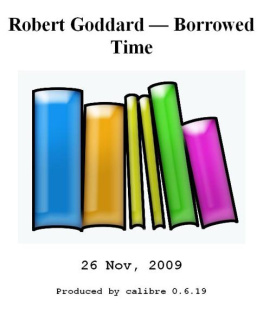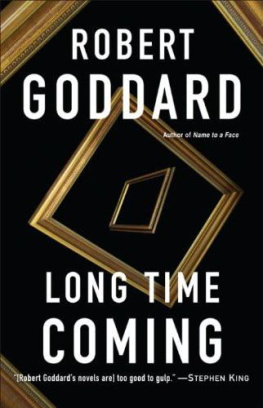AUTHORS NOTE
The known facts concerning the loss of HMS Association and three other men-of-war off the Isles of Scilly during the night of 22/23 October 1707 are faithfully represented in this novel, as are the circumstances of the theft of an emerald-and-diamond ring from Admiral Sir Clowdisley Shovells body when it was washed up at Porth Hellick. There is no evidence either way as to whether this was the same ring later supposed to have been returned to the Shovell family.
Francis Gashry is a genuine if minor historical figure. He thrived under the patronage of Admiral Sir Charles Wager, whose Cornish estate he ultimately inherited. Born in Stepney in 1702, the son of a Huguenot perfumer, he held a number of posts at the Admiralty before securing his most lucrative appointment as Treasurer of the Ordnance. He served as MP for East Looe from 1741 until his death in 1762.
William Borlase, the famous Cornish antiquarian, was rector of Ludgvan from 1722 until his death in 1772. The construction of an extension to the rectory early in 1736 (to accommodate Borlases growing family) might well have obliged him to lodge a visiting antiquarian at his brother Walters house, Castle Horneck, on the outskirts of Penzance.
Historians are increasingly inclined to doubt that King Edward II died, as generally supposed, during his imprisonment at Berkeley Castle in 1327. His son and successor, Edward III, is now believed to have met his father in secret on at least one subsequent occasion and to have been successfully blackmailed by an Italian priest who possessed evidence of the former kings survival. Where, when and how Edward II actually died no one can say.
ONE
F ew of Jardinieras clients lived in Monaco, for the simple reason that few residents of the principality possessed a garden. The high-rise apartment blocks jostling for a tax-free footing on its expensive square kilometre of the Cte dAzur left little room for the landscaped riots of greenery to be found in the grounds of villas to east and west.
An exception to this rule was, however, one of Jardinieras best clients. Barney Tozer was in fact rather more than a client, having bought himself a slice of the company and with it the implicit right to prompt attention whenever he required it. He had also bought himself, at a price Tim Harding should only have been able to guess at but actually knew to the last eye-watering zero, the penthouse apartment in one of the most prestigious blocks in La Condamine. Thanks to the sheerness of the rock face against which the block had been built, the penthouse came complete with its own garden, perched at the level of the next road above, commanding a fine view of the yacht-crammed Port de Monaco and the sparkling blue vastness of the Mediterranean.
An electronically operated shutter-door set in the high stone rear wall of the garden gave access to a double garage, sparing its owner the need to squeeze his four-wheel-drive giant into the communal garage in the blocks basement and allowing Harding to drive his Jardiniera truck in off the road after entering the four-digit code he had been trusted with on the number-panel attached to the entryphone.
Harding was a well-built, broad-shouldered man in his late forties, brown hair bleached blond enough by the sun to camouflage the streaks of grey, skin so deeply tanned that his blue-grey eyes sparked brightly, frown-and smile-lines more or less equally pronounced on his evenly featured face. Gardening for a living had kept him physically fit, but something in his face, something wounded and wary, suggested that people had always been a greater mystery to him than plants.
He parked the truck on the hardstanding in front of the garage and climbed out into the cool, clear, light-filled air as the shutter-door completed its well-lubricated descent behind him with a reassuringly solid clunk. Harding was dressed for work, in jeans, boots and skiing jacket, although he happened to know that no soil would be turned or shrub pruned this morning. He happened to know, but was obliged to pretend he did not. Which was only one of the reasons for the discomfort he felt.
The morning was fine but chill. Winter and spring were still taking turns this early in the year, even on the Riviera, where the locals seemed to regard anything other than warm, settled weather as a personal affront. It was a quiet time for Jardiniera. Many of their clients were away. Most of the gardens they tended were ticking over gently, with little need of anything beyond routine maintenance. Harding knew he would be unable to plead pressure of work as an objection to doing what was going to be asked of him. He knew, in fact, that he would be unable to raise an objection of any kind. Even though some instinct he suspected he ought to heed told him he should.
Barney Tozer was on the terrace beyond the swimming pool, leaning back against the balustrade that guarded the drop to the roadway far below. He was in the middle of a phone conversation and did no more than raise a hand to acknowledge Hardings arrival. This was no surprise. He was a man who spent so much time on the phone that his right shoulder was permanently lower than his left, giving his whole body a slightly skewed, misshapen appearance. He was about the same age as Harding, but did not look so well on it, a substantial paunch filling out the loose sweater he wore above baggy trousers and deck shoes, his thinning hair cropped short, a second chin wobbling beneath his jaw as he spoke. But the obese and gleaming watch lolling on his wrist hinted at the other kind of pounds he had acquired an excess of over the years, not to mention the euros, dollars, yen and Swiss francs. He was, Harding needed no reminding, a seriously wealthy man.
There was a vagueness about the source of this wealth. Barney Tozers company, Starburst International, dealt in timeshare properties and the luxury end of the holiday market, but Harding had always found it difficult to believe that such business could yield profits on the scale its chairman and managing directors lifestyle suggested it did. Harding was no expert, of course. He knew that. And he knew there were other factors complicating his relationship with Barney. One of those was that he actually liked the guy. Barney was a generous, affable, garrulous, down-to-earth Cornishman who hardly fitted the tax-exile stereotype. He and Harding had become drinking buddies over the last couple of yearsfriends, for want of a better word, though there were in truth too many secrets between them to make it quite the right word.
Harding crossed the modest but manicured lawn and made his way slowly round the pool to where Tozer was standing, scanning the lemon trees and hibiscuses as he went to confirm that they were looking well, even though he knew his host would be unlikely to notice their condition unless they shed their leaves and died in front of him. The phone call was ending in murmured farewells. By the time Harding reached the terrace, it was over.
Morning, Tim, said Tozer, slipping the phone into his pocket and smiling broadly. Hope you havent had to make too much of a detour to fit me in.
Not at all. Theres a villa on Cap Martin Im going to visit this afternoon. I might be in line for quite an ambitious landscaping job there.



















